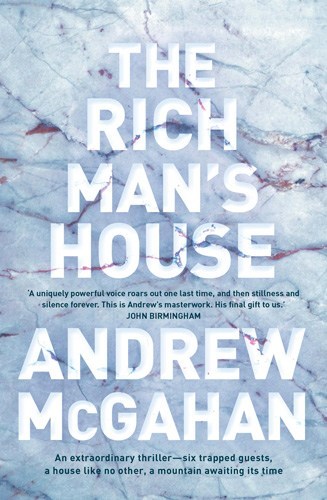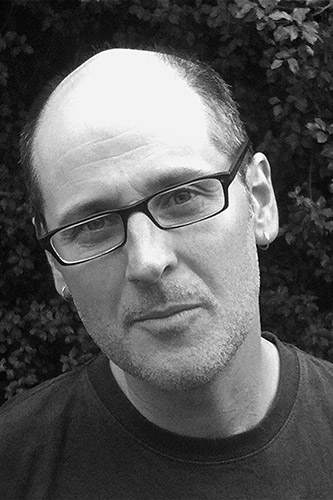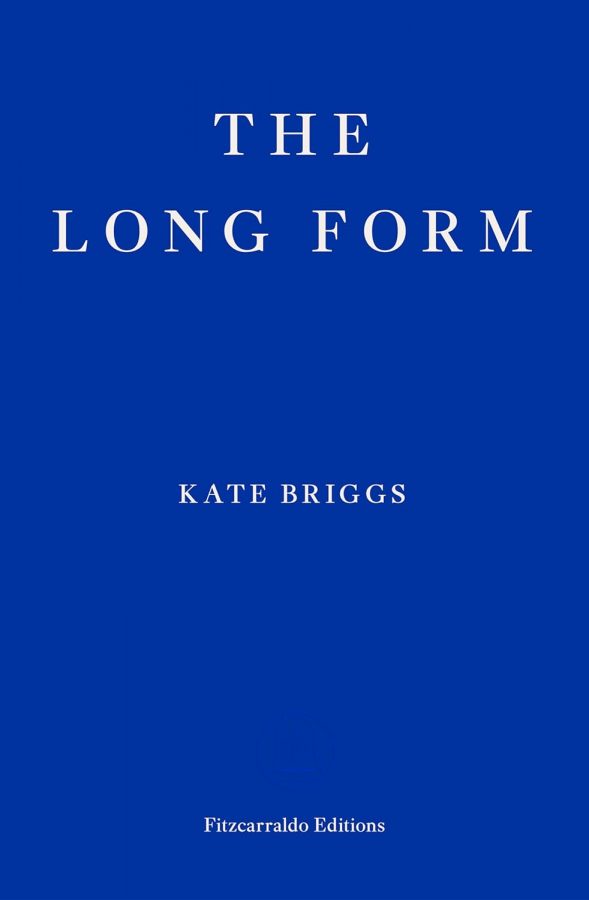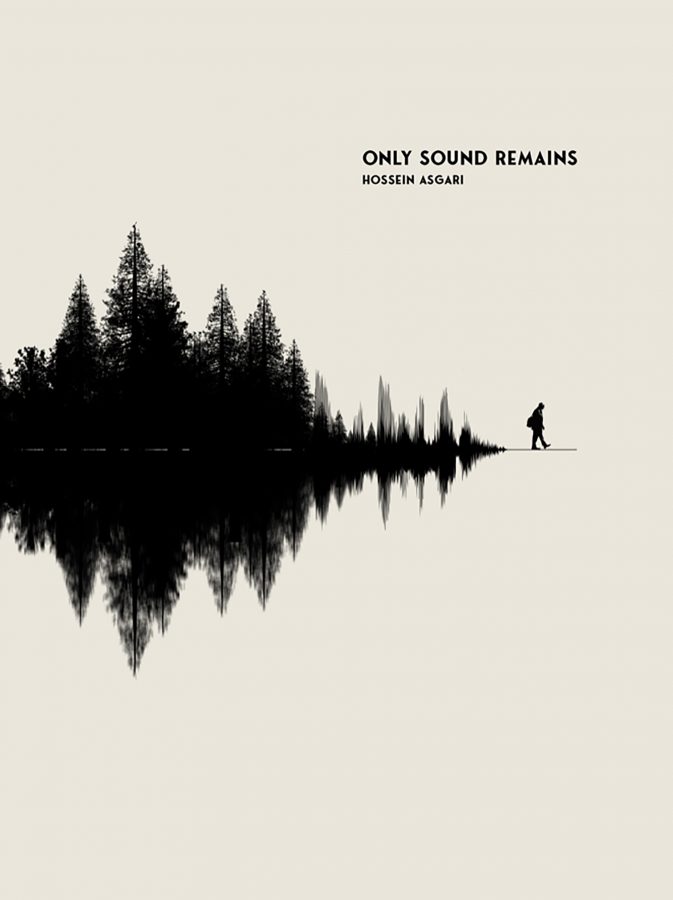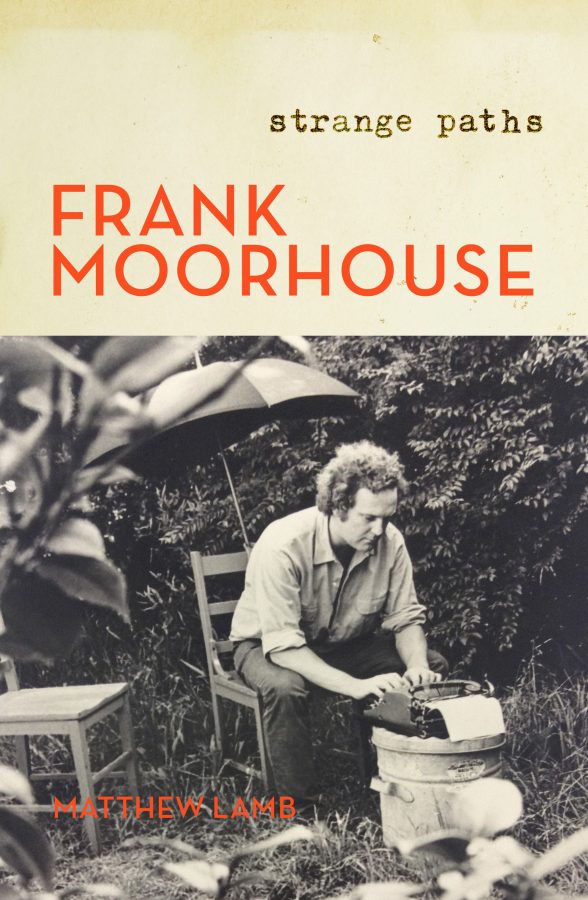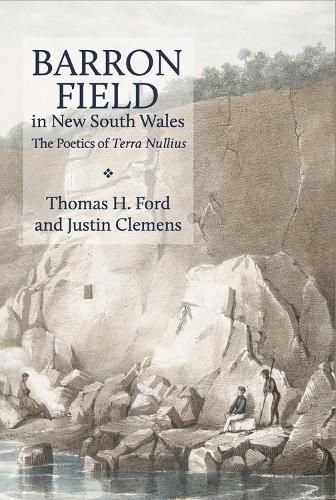Andrew McGahan’s first novel Praise (1992) was one of those books that captured the mood of its time and place. More than any other Australian novel of the early 1990s, it found a way to express the peculiar sense of disaffection and uncertainty inherited by those of us who just happened to come of age at the tail end of two decades of social and economic transformation, at the very moment an exhausted nation slumped into a recession. Its depiction of the seedy urban existence of its narrator Gordon Buchanan was greeted with a fusillade of clichéd adjectives (gritty, unflinching, confronting, and so forth) and hailed as a contribution to a confected genre that an especially witless hack decided to call ‘grunge’ — a literary movement notable for the fact that no one wanted to belong to it, least of all McGahan. But the significant aspect of all the sex and drinking and drug-taking described in the pages of Praise was that they were so ordinary. There was nothing edgy or rebellious or liberating or hedonistic about them; they were simply part of the texture of reality, commonplace activities that lacked even the residual glamour of decadence. They evoked a drab world of foreclosed possibilities, a world in which both the tattered countercultural ethos of the 1960s and the fluorescent crapulence of the 1980s had been exposed as empty promises. The passive cycle of drinking and drugging was presented as a numbing routine, a mundane way to pass the time while surveying a prospectless horizon. Sex was depicted with an emphasis on its unerotic complications: premature ejaculation, venereal disease, unwanted pregnancy, mismatched desires, a general sense of awkwardness and embarrassment.
When McGahan died earlier this year at the age of 52, the tributes invariably cited the cultural impact of Praise as a major achievement, and rightly so. Though he would go on to enjoy many other literary successes, McGahan would never again write with such raw intimacy. To the extent that Praise addressed its wider social and political context, it did so implicitly. The boundaries of its enclosed milieu were set by Gordon Buchanan’s ambivalence and introspection; its laconic humour and unpretentious style reflected his undemonstrative character. McGahan would continue to make effective use of detached and uncertain perspectives in his fiction — his protagonists tend to be marginal figures caught up in events they do not fully understand — but his work came to be defined by two very large themes: the ideological deformations of Australian politics and, increasingly in his later novels, the awesome power of the natural world.
These themes received their first tentative airing in McGahan’s second novel 1988 (1996), a satirical ‘prequel’ to Praise, in which he recoiled from the self-congratulation of the bicentenary celebrations, alluded to the nation’s effacement of its Indigenous history, and sent Gordon to a remote lighthouse to be lashed by a ferocious storm. But his political turn achieved its fullest expression in the three novels he would write during John Howard’s term as prime minister. Each is a different genre: Last Drinks (2000) is crime fiction; The White Earth (2004) is rural gothic; Underground (2006) is a comical action-adventure story. Each positions itself at a distance from Howard’s Australia. Last Drinks looks back at the endemic corruption of Queensland politics, before it was exposed by the Fitzgerald Inquiry in the late 1980s. The White Earth is set in the early 1990s, around the time of the Mabo decision and the ensuing uproar over land rights. Underground imagines a post-Howard Australia governed by a smarmy Howard disciple named Bernard James. These three politicised novels are, nevertheless, definitive Howard-era creations. Read as a loose trilogy, they offer a sustained critique of the palpable cultural shift that occurred during his decade in power.
What unites them is their understanding that the essence of this transformation was psychological as much as anything else, that it was achieved by validating historical myths and flattering lies about the national character. The common wisdom among Howard’s detractors is that he succeeded by stoking resentments and fears. This is true enough. But appealing to base instincts is merely a crude (if effective) political tactic, and fear is a difficult emotion to sustain. To achieve lasting cultural change, it is necessary to provide the kinds of rationalisations that will support an ongoing belief in their essential virtue — rationalisations that will turn meaning on its head, because their very purpose is to nurture the feelings of entitlement that can excuse even the most blatant manifestations of selfishness and discrimination. Thus it is because we are such egalitarian people that structural inequities can be perpetuated; it is because we are so fundamentally decent that historical injustices and rank prejudices can be ignored or denied; it is because are so generous and welcoming that we can operate offshore gulags with a clear conscience. It is by no means the least malignant part of Howard’s legacy that he encouraged the nation to relish the taste of its own bullshit.
The fascinating aspect of all this for McGahan was the way in which such obviously self-serving rationalisations harden into outright delusions. His mid-period novels are all concerned with characters who refuse to face uncomfortable truths, who construct agreeable fantasy worlds and live inside them, only for their lives to come crashing down when those fantasies become untenable. In Last Drinks and The White Earth — his two best novels — McGahan turned his attention to the neuroses and regressive instincts that are never far from the surface of Australian life, examining them through the cracked magnifying lens of his home state of Queensland. These novels seek to make explicit the connection between individual manifestations of willful blindness and much larger historical and ideological forces. Their central characters are driven to their ruin by the inertia of inherited cultural assumptions, no less than their own weaknesses and vanities.
Last Drinks presents the entire state as a curious case study. As McGahan’s hopelessly compromised narrator George Verney observes, Queensland is ‘maligned and scorned by the rest of the country — an intellectual backwater, a redneck breeding ground for ignorance and bigotry and corruption, and it had earned those titles’. The bad old pre-Fitzgerald days are remembered for the complacency with which people accepted that Queensland’s boring and puritanical facade was barely concealing a rampant culture of graft and sleaze, tolerated the fact that its electoral system was so gerrymandered that for three decades it effectively functioned as an autocratic one-party state. You cannot even begin to understand Queensland, George muses at several points in the novel, until you realise that the great majority of its population was untroubled by this arrangement. Motivated by a defiant parochialism, they regarded the most oppressive and backward features of their society as evidence of superiority, mistook the dissembling incoherence of their political leaders for honesty, and ‘convinced themselves that nothing was seriously wrong. It was a betrayal, somehow, to believe that anything could be wrong. As if admitting that even one small fault existed would lead to an entire flood of admissions, and we’d all drown in it.’
The notorious exceptionalism of McGahan’s home state is thus the very thing that makes it unexceptional. ‘Queensland itself was an example of human nature,’ shrugs one character. ‘Greed and selfishness and stupidity.’ The booze-soaked Last Drinks equates the cultural myopia with alcoholism: it is a form of intoxication, in the sense that it is a state of impaired judgement, but also in the literal sense that it is a kind of self-administered poisoning. The novel’s sly conflation of alcoholism and religion (all of George Verney’s corrupt drinking buddies just happen to be recovering Catholics) emphasises the ambiguous nature of the affliction. Drinking is a problem that pretends to be a solution, an escape that doesn’t get you anywhere, a disease that can be interpreted as both a material and a spiritual malaise. It generates a cycle of obliterating behaviour, in which it becomes hard to distinguish between choice, social conditioning and physical compulsion. As George comes to understand, the great temptation of alcohol is that it narrows the outlook. The ‘golden glow’ of drunkenness bestows a temporary and spurious feeling of wellbeing, lures you ever deeper into a coddling sense of insularity, until you are ‘trapped, a distorted, speechless mind, capable of looking out upon reality in a way that was no better than hallucinating. It was hallucinating.’
McGahan’s fascination with the natural world comes to be associated with the narrative drive in his fiction toward moments of clarity, moments when illusions fall away and the obscured truth is finally exposed. The impersonal forces that produce thunderstorms and cyclones, form continents and mountain ranges, create stars and planets, are sobering counterpoints to the arrogant human instinct to take ourselves as the measure of reality. As McGahan writes in Wonders of a Godless World (2009) — his most conceptually ambitious novel, in which his geeky layman’s interest in geology and meteorology inspires some of his finest descriptive writing — the universe is ‘driven by systems so vast they dwarf mankind and all his works to nullity’.
The symbolic opposition between man and nature assumes a material form in the grandiose buildings that feature in his novels as monuments to hubris and folly. In the opening scene of Underground, for example, a newly built coastal resort — one of those paragons of tacky opulence, complete with its own artificial beach shellacked over an ancient mangrove swamp — is torn apart by a category-five cyclone. The devastation is a dramatic prefiguring of the collapse of a version of the Australian dream, as envisioned by the novel’s narrator, the Prime Minister’s louche brother Leo James, who can’t quite understand how the country he had always thought was a laid-back larrikin democracy mutated into a sinister authoritarian state.
A potent example of this kind of overt symbolism is Kuran House, the crumbling homestead at the centre of The White Earth, which is coveted and eventually possessed by John McIvor, the most psychologically complex of McGahan’s characters. Onto the mansion’s decaying splendour McIvor projects all of his patrician aspirations. His obsession with restoring Kuran Station to its former glory comes to speak not only of his delusions of grandeur and ideological self-deceptions, but the buried feelings of resentment, guilt and shame that have warped his personality. Beyond this personal significance, the house embodies an overarching irony, which is that McIvor’s dynastic ambitions and his claim to have an enduring connection to the land draw attention to the trenchant absence of Indigenous voices from the novel and the shallowness of that vaunted connection. Kuran House is the manifestation of a vainglorious and dishonest history that would elide the murderous violence of colonisation. Set against the timelessness of the land, its superficially imposing presence comes to seem transitory and insignificant; its advanced state of disrepair mocks the idea of permanence.
There is, in this sense, a moralising impulse at the heart of McGahan’s evocations of the sublime. The implacable neutrality and sheer incommensurability of the universe are presented as the ultimate rebukes to the vanity of human wishes. Near the end of The White Earth, shortly before Kuran House is destroyed in a firestorm, John McIvor’s grand-nephew and reluctant protégé William — through whom much of the novel is focalised — becomes lost in the vastness of Kuran Station. Feverish from an undiagnosed ear infection, he begins to hallucinate. Mythical figures from the stories his great-uncle has told him loom from an increasingly surreal landscape. In the midst of these disturbing visions, there is a striking moment when the perspective zooms out to provide an objectifying glimpse of William’s isolation and vulnerability:
The planet, rolling with its vast slowness in space, had exposed its brown hide to the full fury of the sun, and William felt that he was a tiny figure crawling naked across its surface. He could see himself from above.
The hallucinatory episode anticipates Wonders of a Godless World, which is told from the point of view of a woman known only as the orphan, who lives in a psychiatric hospital on an unidentified island. She comes to appreciate the staggering power of those blind forces that shape the planet when she begins to receive telepathic communications from a patient she calls the foreigner. He becomes her guide on a series of vivid imaginative flights, during which he impresses upon her the hard truth that the earth ‘recognised no suffering, rewarded no effort’. The great secret of the natural world, he explains, is that ‘life doesn’t matter to the earth … the earth was nothing but a collection of such systems, and against such systems life, no matter how beautiful, had no special claim’.
This cosmic sense of scale creates a definitive ambiguity — an ambiguity that is conceptual rather than philosophical. It is significant that William and the orphan are granted their insights while in the grip of delusional states. Their hallucinations represent the paradoxical paradigm of fiction itself: the lie that allows us to see the truth. It is only through the workings of the imagination that it becomes possible to grasp realities beyond our immediate perceptions.
McGahan’s productive embrace of genre fiction can be interpreted in this light as a way of reconciling his competing inclinations, finding imaginative means to express his philosophical realism. He was never a realist in the literary sense of the word. Even the so-called ‘dirty realism’ of Praise was an exercise in genre (he later admitted that he was imitating Charles Bukowski). From the very beginning of his career, McGahan was a writer with sound narrative instincts, alert to formal demands for coherence and resolution. His novels tend to subordinate their philosophical and psychological themes to the structuring logic of their symbolism. He freely acknowledged his debt to Patricia Wrightson, who was an important influence on The White Earth and his subsequent decision to write a series of young-adult fantasy novels, her work suggesting ways of writing about the Australian landscape as a romanticised space in which the natural blurs into the supernatural.
The combination of these various predilections and influences had the effect of turning his novels into waking dreams, imaginative exercises in wish-fulfilment. A mysterious cosmic justice comes to prevail in his godless world. Reality is depicted as inspirited, capable of wielding retributive force. The destruction of those symbolic buildings — those ideas made tangible — becomes more than a matter of contextual irony. Starting with The White Earth, McGahan’s novels begin to take on the simple narrative contours and moral clarity of fables. They become, in essence, fairy tales.
It is fitting that McGahan’s final novel should draw together several of his defining themes, and that he has fashioned those themes into a satisfying slab of genre fiction. The Rich Man’s House is a spectacular tale of hubris and nemesis, which cleaves with evident delight to the narrative conventions of a big-budget disaster movie. It also comments, in a somewhat peculiar manner, on the despoiling effect of the human presence in the world and, more pointedly, expresses an unambiguous disgust at the arrogance and selfishness of the ultra-rich. Its moral is simple and timeless: memento mori.
The Rich Man’s House is a novel about a mountain. It is set in an alternative reality where Mount Everest is the world’s second-highest peak. The highest is a freakish geological formation located somewhere south of Tasmania in the wilds of the Southern Ocean. The Wheel, as it is known, rises an astonishing twenty-five kilometres above sea-level, more than twice the height of Everest, tall enough to reach into the stratosphere. Conditions on the mountain’s slopes are so inhospitable and unpredictable that they claimed the lives of George Mallory and Edmund Hillary. Tenzing Norgay took one look at the Wheel and went straight back home to Nepal. Only one mountaineer has ever reached the summit. In 1974, at the culmination of a fantastically well-resourced campaign, a multi-billionaire adventurer named Walter Richman, clad in a pressurised suit, was able to stand alone at its apex for a brief period, while his climbing companions waited a short distance below.
Most of the action takes place about half a century after Richman’s triumphant ascent. Now in his seventies and wealthy beyond imagining, he has bought the small island adjacent to the Wheel, where he has built for himself a lavish high-tech compound worthy of a Bond villain: a labyrinthine architectural wonder carved into the rock of the island’s highest peak, topped with an observatory that looks up at the awesome mountain that he and he alone has conquered. The juxtaposition of these two fabulous structures — one natural, one artificial — is, of course, replete with symbolic implication. Richard Gause, the brilliant architect commissioned to design the house, who died suddenly (and suspiciously) shortly after its completion, claimed that his intention in burrowing into the island was to harmonise the artificial structure with its natural surroundings. He wanted to ‘respect the mountain, not injure it’. But it becomes apparent soon enough that humility is not a notable feature of Walter Richman’s personality, and that he has conceived of his mansion — whose cavernous spaces are liked on several occasions to a cathedral — as a shrine to his own ego.
Richman is, in several crucial respects, a rewriting of John McIvor from The White Earth — one that inverts the basic components of McIvor’s personal history, and thus strips away the sources of his underlying insecurity. McIvor comes from a humble background; he is driven by a burning sense of humiliation and shadowed by the fundamental illegitimacy of his claims. Richman is the self-confident product of a life of extreme privilege, someone who has everything he could possibly want, someone so untouchably wealthy and powerful that he could, ‘at a whim, either grant your every wish, or destroy your life completely’.
This makes Richman a less complicated, more straightforwardly villainous character than McIvor, qualities underscored by the fact that the novel’s imaginative conceit places the action at a remove from the specific political contexts that informed The White Earth. Richman is an emblematic figure, a one-note character who comes to represent all of the moral bankruptcy and rebarbative self-satisfaction of the one-percent. As his assistant Clara observes, Richman’s unscrupulous business practices are evidence of a deeper corruption, which is perpetuated by a corrosive form of self-deception:
That the powerful and the rich lie and cheat to stay rich and powerful is hardly a surprise.
What I did not expect was that beyond the lies and the cheating can sometimes be not mere rationalisation or expedience, but … well, call is delusional belief. A place where the lies and the cheating in fact become, to the beholder, the truth. Where manipulation of others, contempt for others, becomes in itself a virtue.
The novel is told primarily from the perspective of Rita Gause, the adult daughter of Richard, who is summoned to Richman’s island fortress in the wake of her father’s death. Rita is a classic McGahan protagonist. Structurally speaking, her role in The Rich Man’s House is similar to that of William in The White Earth. She is placed in an unfamiliar situation, where she is disempowered and beholden, not entirely sure what is expected of her. She has an uneasy sense that she does not know the whole truth. The progress of the novel is charted by her gradual discovery of the reality of her situation. It is through Rita’s objectifying eyes that we come to understand Richman as a sinister but rather opaque character.
Faced as we all are with the catastrophic consequences of anthropogenic climate change, it is tempting to read The Rich Man’s House as an environmental allegory. Richman’s contempt for his fellow human beings, his arrogant belief that he is above moral judgements, and his desire to dominate nature are all manifestations of the same will to power, the same soul-level corruption, and in the imaginary world of the novel they invite retribution from the far greater power that the mountain represents. Hanging in Richman’s mansion is The Triumph of Death by Brueghel the Elder, a priceless masterpiece of medieval art, which presents a tableau of people being killed in a variety of hideous ways, including the breaking wheel (one of the more fiendish innovations of the period, the process involved smashing the victim’s limbs, then threading them through the spokes). When Rita comes across the painting, Richman takes the opportunity to give a sententious speech:
What I admire about the work — about most medieval art — is an understanding that I think modern society has largely lost. Namely, that pain and mortality are not meant to be strangers to us, but are in fact our most constant companions through life. Confronting them both, accepting them, striving in defiance of them, cheerfully, and in full knowledge of inevitable defeat, is the whole point of life. Otherwise, we really are just livestock, dumb and terrified, being herded by death towards the abattoir.
But as another character points out, Richman misinterprets the image. Brueghel’s picture only depicts one kind of death: ‘all the deaths in the painting were man-made … There were no deaths at nature’s hand.’ Richman admires the painting because he cannot see a depiction of his own death: his privilege insulates him from such violence. The painting is thus ‘a fool’s deceit, a comforting lie. The truly mortal danger lay somewhere else entirely.’
The paradoxical premise of the novel is that this mortal danger, which inheres in the natural world, is granted a supernatural dimension. As a young woman, Rita wrote a book about the concept of ‘presences’, arguing that there are certain unpopulated landscapes where mysterious forces can be sensed — forces that are inimical to the intrusions of human beings, and which demand nothing more than to be recognised, respected and left alone. She no longer believes this theory; her older self is embarrassed by the flaky mysticism of her youth. But as the novel unfolds it becomes clear that the Wheel is not simply a monument to the implacable indifference of the natural world. It does indeed possess a malevolent power that is roused by humankind’s desecrating presence. In the latter stages of the novel, which are no less absorbing for being unabashedly formulaic, the Wheel turns the full force of its wrath against Richman. It traps him and Rita (and a few disposable extras) in the observatory, then starts picking them off, one by one, stripping each of its victims naked before they die as a final humiliating reminder that they are no more than poor fork’d creatures.
The generic quality of The Rich Man’s House comes to serve a number of purposes. Not the least of these is sheer entertainment value — pun intended. The novel’s premise allows McGahan to play to his strengths as a writer, indulge his factual and descriptive inclinations. Around his solidly constructed narrative, he arranges extracts from fictional sources that fill in the backstories of Richman and Rita, recount the history of the Wheel, and give an explanation of its unlikely geological origins (it is said to have been formed from a massive shard of displaced tectonic plate). Some of the most thrilling scenes are set-pieces that tell hair-raising tales of mountaineers who dared to climb the Wheel — one man lured to his death by ghostly vision, another ripped from the mountain face by a ferocious downdraft and hurled kilometres out to sea.
But perhaps the most significant aspect of the novel’s fanciful conceit is that it licences a basic contradiction. This is reflected in the fact that the incommensurable supra-human presence of the Wheel is repeatedly described in anthropomorphic terms. The mountain is said to possess a kind of consciousness. It projects emotional states: pleasure and rage, loneliness and grief, a desire for vengeance. Its anger comes to express the moral principles that inform the novel as a whole. To the extent that the Wheel directs its wrath against the emblematic figure of Walter Richman — an embodiment of Ayn Rand’s idiot version of Nietzsche’s Übermensch — The Rich Man’s House is the revenge fantasy of an instinctive egalitarian. In a broader sense, the novel shares with McGahan’s earlier work a desire to draw attention to the precariousness of our position in the universe and the overriding importance of maintaining a sense of perspective and humility.
